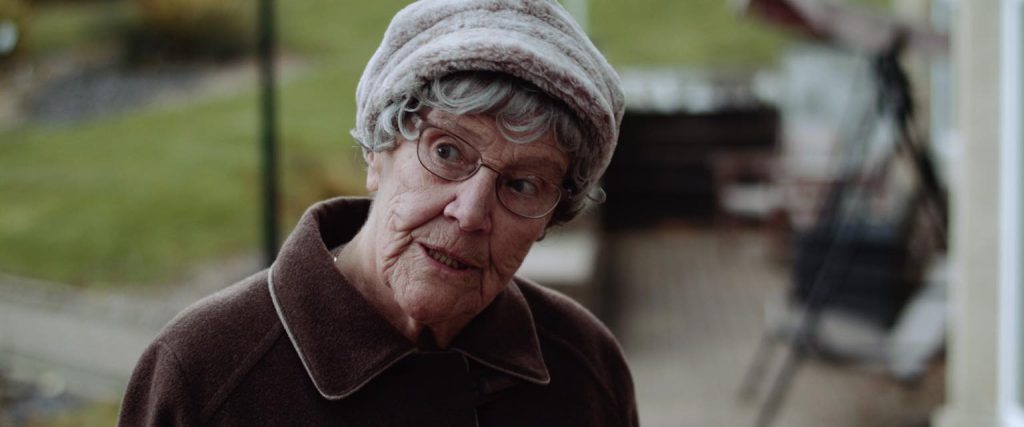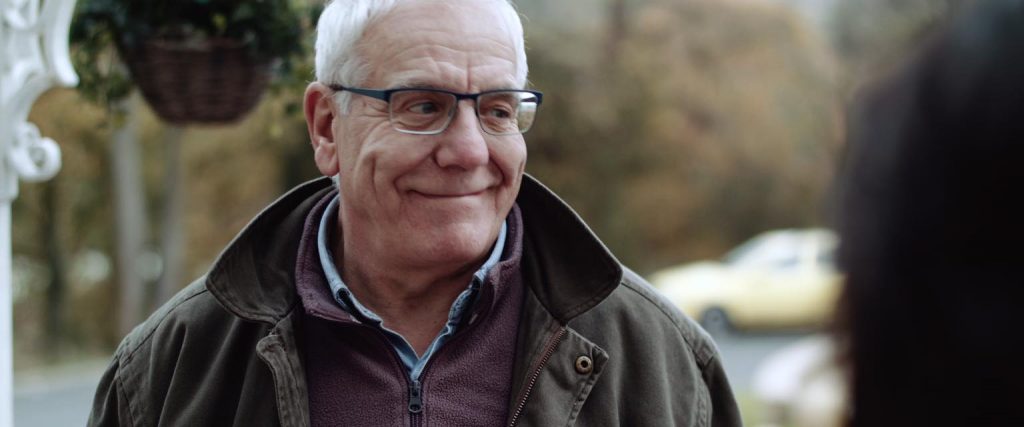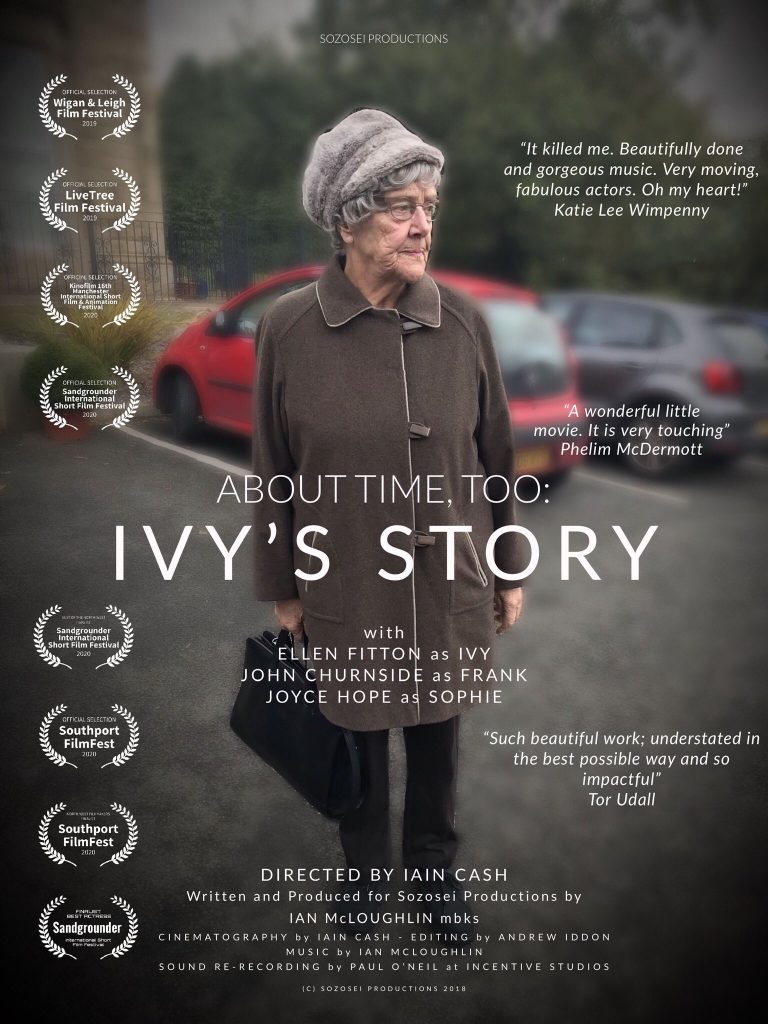Ivy is ready to move into a retirement home, but she needs a ride to the cemetery and her new residence from her “driver” Frank in the short film About Time Too: Ivy’s Story.

Dementia is such an awful and wicked disease that affects many around the world. In fact, it is estimated that fifty million people are affected by dementia today and is expected to increase rapidly over the next thirty years. A quarter of all hospital beds in the UK are taken up by people over 65 who are living with dementia, so many can relate to this short film by Iain Cash.
About Time Too: Ivy’s Story focuses on the titular lady Ivy Lodge (played exceptionally well by Ellen Fitton). We first meet Ivy as she sits at her dining table, staring at a framed photograph of her late husband Jim, before she grabs her bags, and puts her coat on, ready for her ride to arrive.
After some quick introductions between Ivy and her driver Frank (John Churnside), they make their way to a local cemetery so Ivy can pay her respects to her deceased husband. On the way there, the two engage in some humorous conversations, and Ivy is more than happy with Frank’s company, yet she can’t understand why her own son Francis hasn’t helped her move into her new home.

The two soon arrive at the retirement home, and a carer named Sophie (Joyce Hope) helps her settle in. Frank and Ivy say their goodbyes before Frank leaves and reveals a new bit of information for the audience, which is likely already guessed at by everyone watching the short, or even after reading this review.
About Time Too: Ivy’s Story is a sweet, and moving thirteen-minute film that features two great and understated performances by Fitton and Churnside. The emotion seeps through the script, and one can’t help but feel sorry for both, especially Frank, who is witnessing Ivy’s mind deteriorating in front of him.
The cinematography, which was also done by director Iain Cash, is pleasant throughout, with good uses of sliders and dollies, with some nice framing too. Cash, who has featured on Screen Critix in the past with such films as Forever Manchester, and Dear John, I’m Sorry, does well in making this short subtle with the subject matter. The script, which was written by producer Ian McLoughlin, has some great and naturalistic dialogue which made the short very much real and relatable. Showing that he himself is also great in many fields, McLoughlin also provides the score – which in itself is beautifully made up of piano songs.

The real issue About Time Too: Ivy’s Story has is with its sound. From the off, you can tell that a boom op or an on-set sound mixer wasn’t used, and the makers of the short had to simply rely on lav mics, placed under the actor’s clothes. Lav mics are usually used as a backup to a boom mic, but with no boom mic, we, unfortunately, get muffled and distorted sound. Also, with no boom mic, there is no room tone to use, so the background audio sometimes cuts out in between cuts. We can’t stress enough that good sound is imperative to having a good film. If the short had better audio, we certainly would be rating About Time Too: Ivy’s Story even higher.
With that being said though, Iain Cash has created another fine short film, showing that he is a very capable filmmaker from the North of England. We believe, due to the direction, performances, script, and subject matter, it will do well with audiences and festivals.
You can watch it yourself, right here on Screen Critix.
